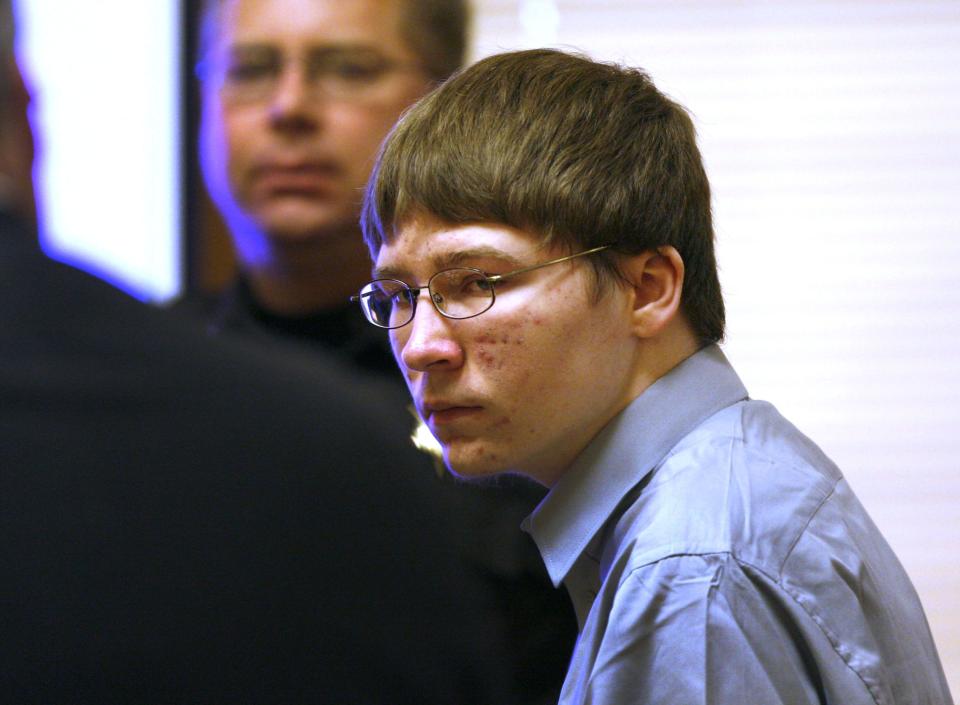Steven Avery’s former attorneys, Jerome Buting and Dean Strang, urge Gov. Tony Evers to consider clemency for Brendan Dassey
- Oops!Something went wrong.Please try again later.
In a letter to Wisconsin Gov. Tony Evers, Steven Avery's former attorneys ask for clemency for Brendan Dassey, who has spent about half his life in prison for his conviction in the death of Teresa Halbach.
In 2007, Dassey, 32, was sentenced to life in prison after a jury found him guilty in the death of Halbach, a 25-year-old photographer who had disappeared two years earlier. Dassey won't be eligible for release until 2048, when he will be 59.
Jerome Buting and Dean Strang, who represented Dassey's uncle, Steven Avery, urged Evers to consider commuting Dassey's life sentence, writing "the courts have failed Brendan repeatedly and at every level."
"We ask you to exercise the power that only you have: to free him," the letter says. "We ask you to do it now."
RELATED: Steven Avery still has options, even after rejection by Wisconsin’s highest court
Dassey's story was featured in the Netflix docuseries "Making a Murderer," which cast doubt on the motives of police and left many viewers with the impression that Avery and Dassey were wrongfully convicted.
Dassey's conviction was largely based on a videotaped confession he gave to police when he was still a student at Mishicot High School. He was interrogated four times in a 48-hour period starting Feb. 27, 2006, and ending March 1, 2006, with no adult present on his behalf for three of the four times he was questioned by investigators.
Strang and Buting say Dassey's confession "resulted from trickery by seasoned police officers," against a teenager with "special needs and no experience with the police."
In 2016, Dassey came within days of release after a federal judge in Milwaukee found there were "significant doubts as to the reliability of Dassey's confession" and ordered he be released and retried. That order was reversed by a closely divided appeals court, with one of the dissenting judges describing the ruling as a "profound miscarriage of justice." The Wisconsin Supreme Court and U.S. Supreme Court have both declined to hear Dassey's case.
"The failure of the courts was complete," the letter by Buting and Strang says. "That leaves executive clemency, which exists to correct injustice when courts can't or won't."

Evers has already rejected a previous bid for clemency from Dassey, though he has granted more than 400 pardons in his time as governor. Evers, though, has never commuted the sentence of anyone actively serving a prison sentence. Instead, Evers has allowed only those who completed their sentence at least five years ago to apply for a pardon.
Buting and Strang called on Evers to make Dassey his first commutation: "Send him home, where he has belonged since 2006," their letter says.
By refusing to cut short sentences, Buting and Strang wrote that Evers has neglected thousands of people in prison in Wisconsin who were unfairly convicted or sentenced too harshly.
Buting and Strang asked Evers to be a "governor of grace, not of cruelty or cowardice." Dassey and many other people in prison, along with all residents of Wisconsin, would benefit, their letter says.
"A governor who does not exercise the full clemency power of the office, then, is no full governor at all," the letter says. "That occupant of only part of the office is, in a real sense, graceless."
Contact Chris Mueller at 920-996-7267 or cmueller@gannett.com. Follow him on Twitter at @AtChrisMueller.
This article originally appeared on Appleton Post-Crescent: Steven Avery's ex-attorneys urge clemency for Brendan Dassey

